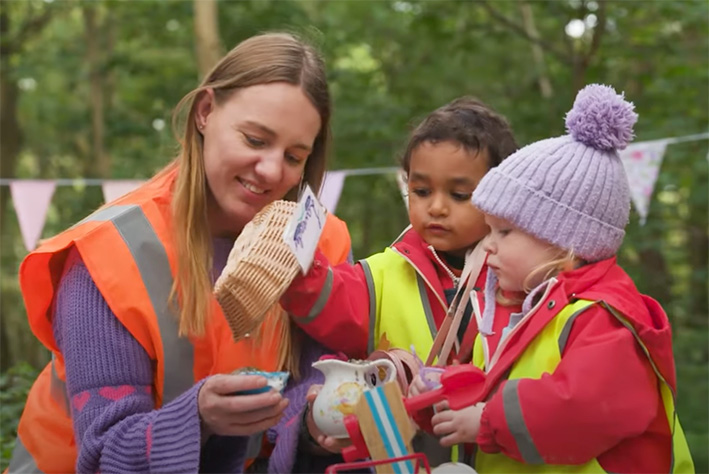Channel 4 bets on social branded entertainment

Channel 4 has partnered the Department for Education (DfE) and its media agency MG OMD on a new branded entertainment series in the first half of the year.
As part of Channel 4’s digital-first Fast Forward strategy, the broadcaster has sought to grow its social branded entertainment business.
The DfE will sponsor How to Love Your Job, which aims to “encourage people to progress careers and grow awareness of roles within childcare and education”, according to Channel 4.
Channel 4 and the DfE had previously partnered on ads to support the latter’s Skills for Life initiative.
How to Love Your Job premiered this week across Channel 4’s YouTube, Instagram and Facebook channels, as well as on streaming.
Confidence for 2026
Channel 4, like other broadcasters and publishers, has leaned further in to producing branded entertainment in recent years. Its current slate includes Celebrity Send-Off with Co-op Funeralcare and Pizza Spa with Domino’s.
In an interview with The Media Leader, Rupinder Downie (pictured, below), Channel 4’s content solutions leader, argued that the latest branded entertainment series “re-emphasises the strong social branded entertainment offering Channel 4 presents to its clients”.
The broadcaster has seen substantial growth in 2024 and early 2025 in advertiser interest in partnerships, she noted.
In its 2023 earnings, Channel 4 warned that a large number of existing partnership deals came to an end during the year, weighing on new revenue stream development amid a decline in the wider linear ad market.

But according to Downie, branded entertainment revenue rebounded in 2024, growing by 62%, while revenue from sponsorships grew by a more modest 8.5% — although she declined to specify how much of the overall business such revenues contribute to.
She added that while there was some “churn”, most of it has been replaced by “other flagship brands” and that brands such as the DfE returning for more signals positive momentum. Most deals, Downie added, are booked weeks in advance and she is “feeling really confident about next year”.
This is in part because, as Downie explained, Channel 4 has “now been able to prove that social content branding works” by measuring positive brand effects like improved consideration and “talkability”.
Channel 4 linear ad revenue down 16% after TV market recovery ‘failed to materialise’
Leaning in to digital
Indeed, while commercial partnerships could be considered an “established part of the business”, she said Channel 4 has grown its social branded entertainment offering significantly over the past four years and is now beginning to reap the rewards.
The broadcaster is “finding a number of brands are coming to us for expertise in [social]”, with Downie referring to branded social entertainment as “kind of an easy win for us”.
Channel 4 set itself apart from its fellow commercial broadcasters years ago by embracing YouTube and social media platforms to reach new, especially younger, audiences. ITV began following suit last month.
At The Future of TV Advertising Global last month, Channel 4 CEO Alex Mahon argued that TV businesses “should be trying to move into digital as fast as possible” and revealed that 30% of the broadcaster’s currently income is derived from digital sources, including streaming.
Downie added that producers working with Channel 4 have equally become more “commercially savvy about how we can help them monetise their IP”.
That said, she stressed that while driving revenue growth is the goal, providing quality content is at the heart of the proposition.
“Brands are coming to us for great content — be that through traditional sponsorship or wanting to create great content with us,” Downie added.
According to Mahon, Channel 4 receives “a couple billion views per year” by distributing its long-form content on YouTube, for example, but she admitted that “monetisation can be a little problem” on some platforms like TikTok.




